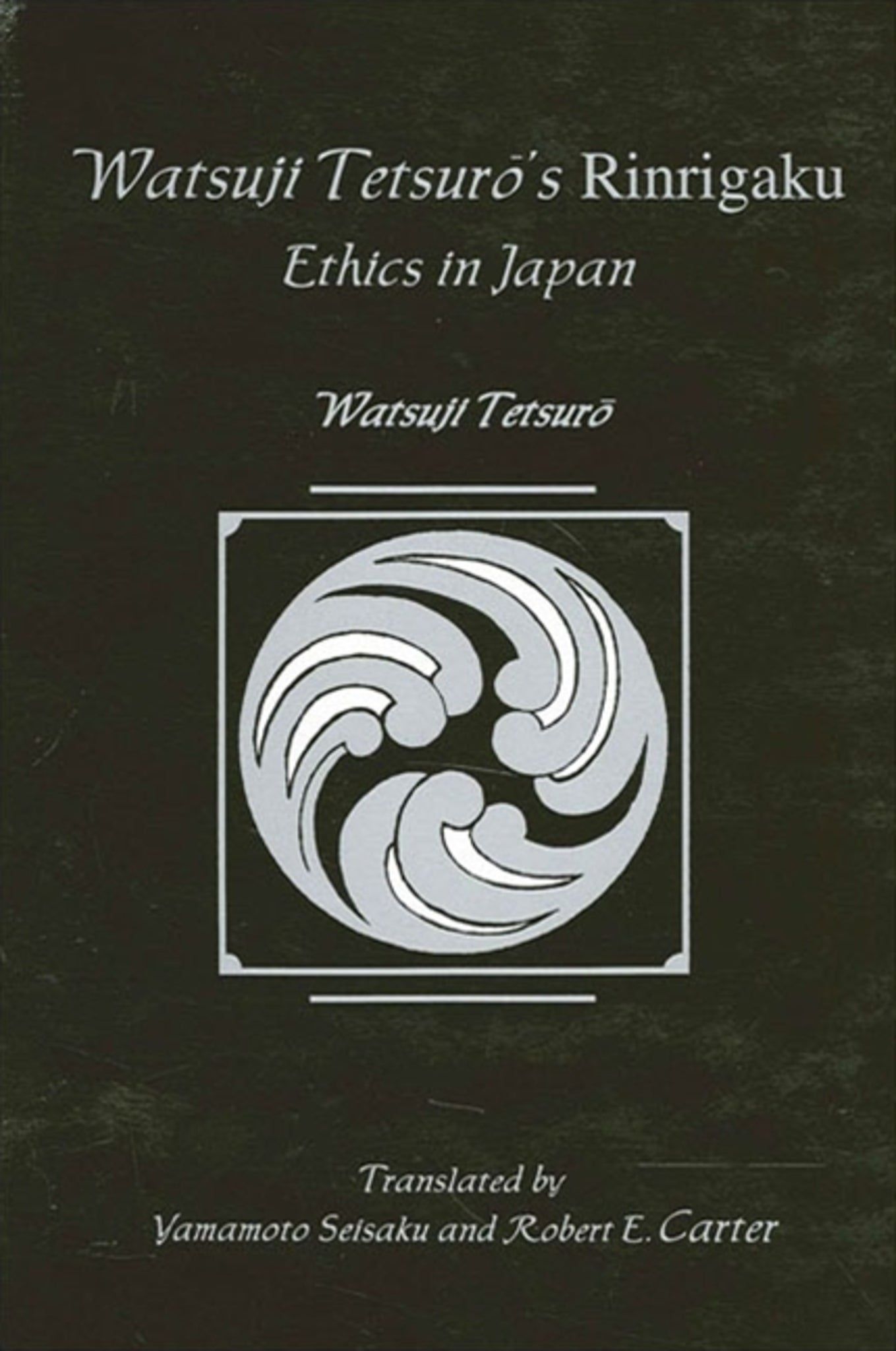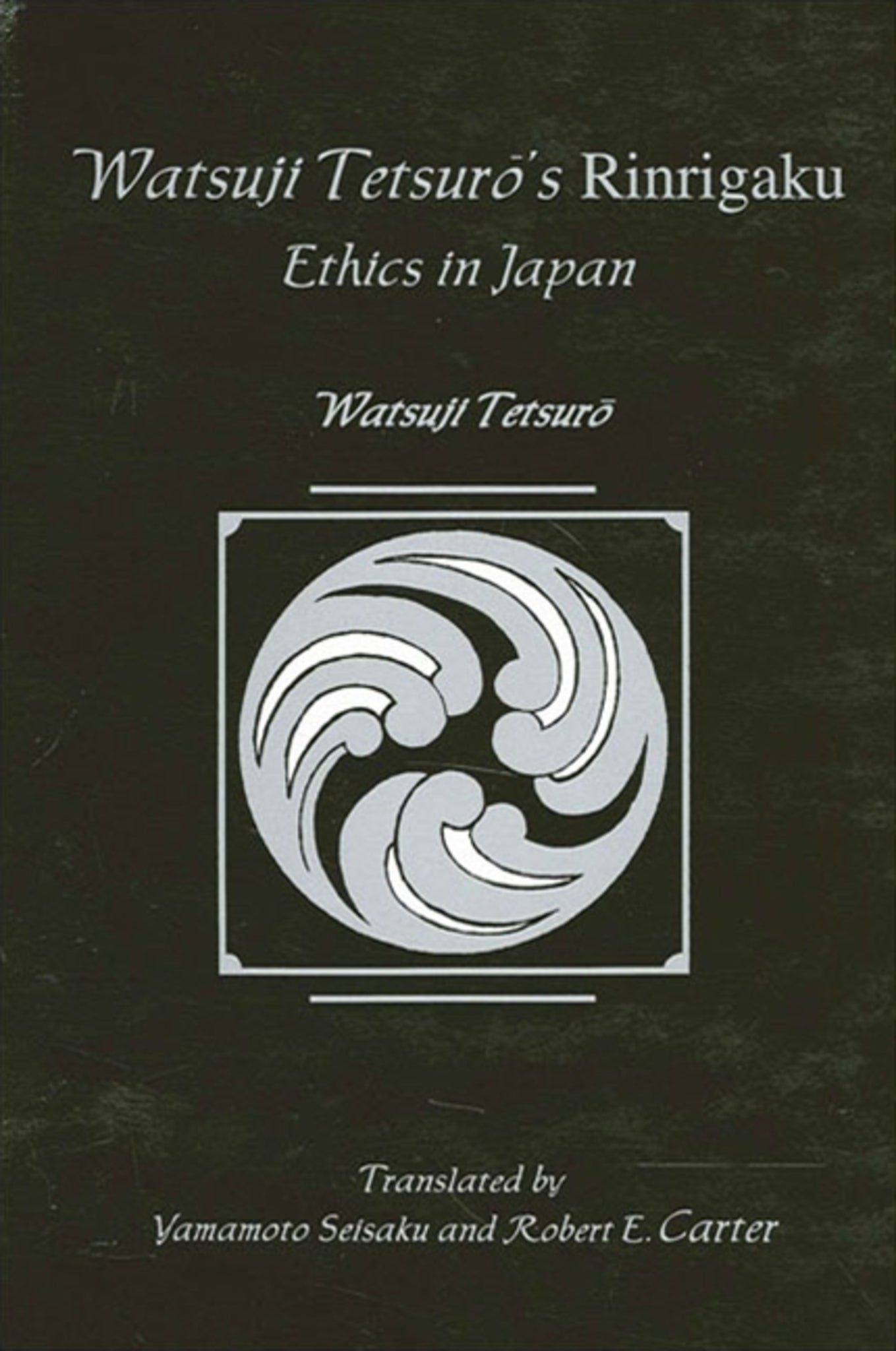We're sorry. An error has occurred
Please cancel or retry.
Watsujiō Tetsur's Rinrigaku

Some error occured while loading the Quick View. Please close the Quick View and try reloading the page.
Couldn't load pickup availability
- Format:
-
03 October 1996

Watsuji's Rinrigaku (literally, the principles that allow us to live in friendly community) has been regarded as the definitive study of Japanese ethics for half a century.
Watsuji Tetsuro's Rinrigaku (literally, the principles that allow us to live in friendly community) has been regarded as the definitive study of Japanese ethics for half a century. In Japan, ethics is the study of human being or ningen. As an ethical being, one negates individuality by abandoning one's independence from others. This selflessness is the true meaning of goodness.


"Robert Carter and Yamamoto Seisaku have produced a wonderfully clear and lucid translation of Watsuji Tetsuro's masterpiece, Rinrigaku. Long known by comparative philosophers as a centerpiece of modern Japanese philosophical tradition, Rinrigaku has been made accessible now to Western students and scholars. For anyone who is a serious student of Heidegger, this work is a must read!" — David Edward Shaner, Furman University
"Here we have a major treatise by a sophisticated thinker who self-consciously wished to provide a distinctly "Asian" alternative to Western ethical systems—systems he and others saw as conceptually flawed and culturally ethnocentric. Long-suppressed questions about the assumed universalizability of some of the West's most privileged moral modes are posed in and through this work. The study both of comparative ethics and of comparative societies will necessarily be much enriched and enlivened by it." — From the Foreword by William R. LaFleur
Foreword
William R. LaFleur
Acknowledgments
Note to the Reader
Introduction
Robert E. Carter
Part I. Introductory Essays
Chapter One The Significance of Ethics as the Study of Ningen
Chapter Two The Method of Ethics as the Study of Ningen
Part II. The Fundamental Structure of Human Existence
Chapter Three The Everyday Fact as a Starting Point
Chapter Four Individual Moments Making Up Human Existence
Chapter Five The Element of the Whole in a Human Being
Chapter Six The Negative Structure of a Human Being
Chapter Seven The Fundamental Law of a Human Being (The Basic Principle of Ethics)
Part III. The Spatio-Temporal Structure of a Human Being
Chapter Eight Private and Public Existence
Chapter Nine The Spatiality of a Human Being
Chapter Ten The Temporality of Ningen Sonzai
Chapter Eleven The Mutual Relation of Spatiality and Temporality
Chapter Twelve The Acts of Ningen
Chapter Thirteen Trust and Truth
Chapter Fourteen The Good and Bad of Ningen: Guilt and Conscience
Appendix: Correspondence with Yuasa Yasuo
Interpretive Essay: Strands of Influence
Robert E. Carter
Notes
Glossary of Japanese Terms
Bibliography of Works About Watsuji
Indexes



